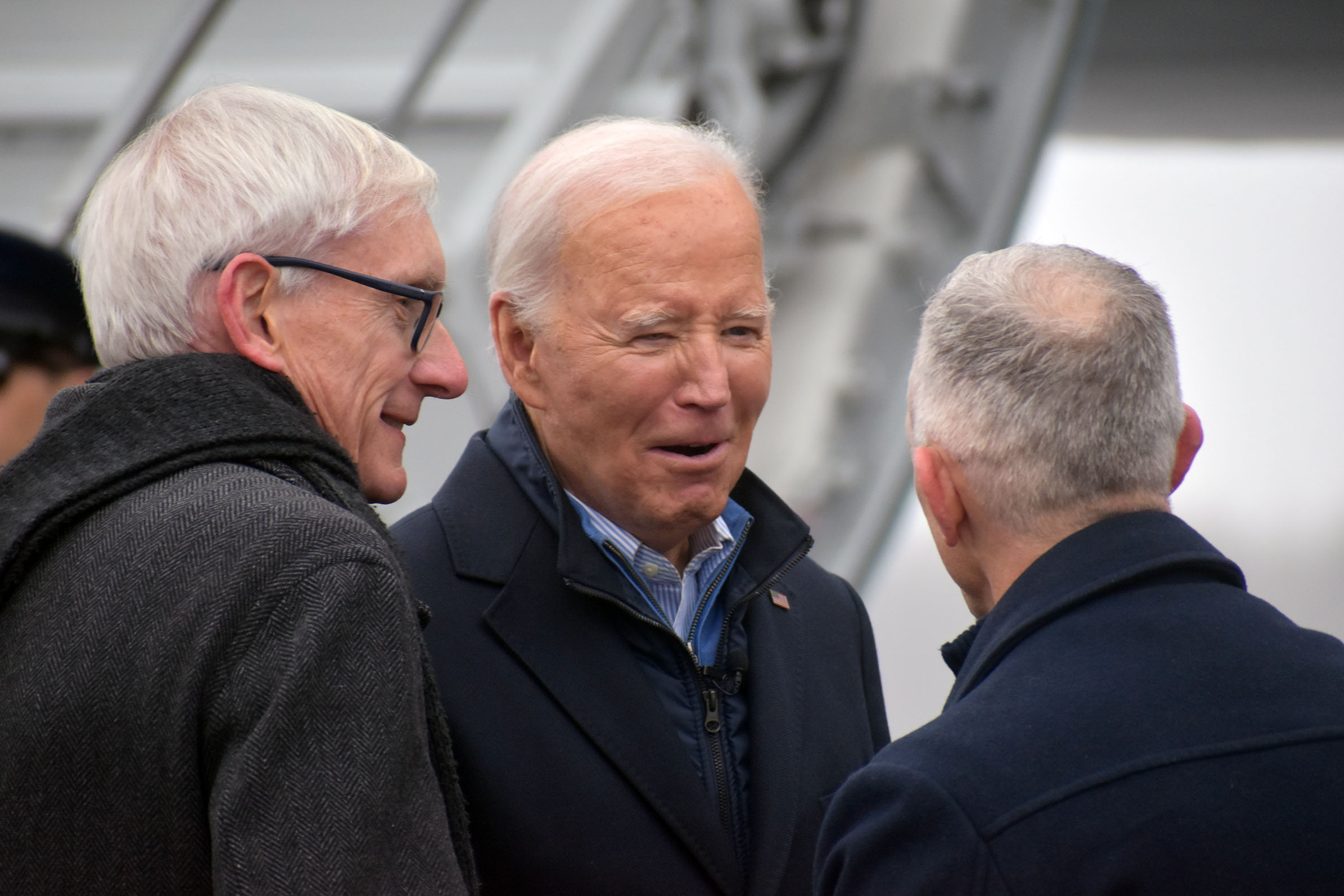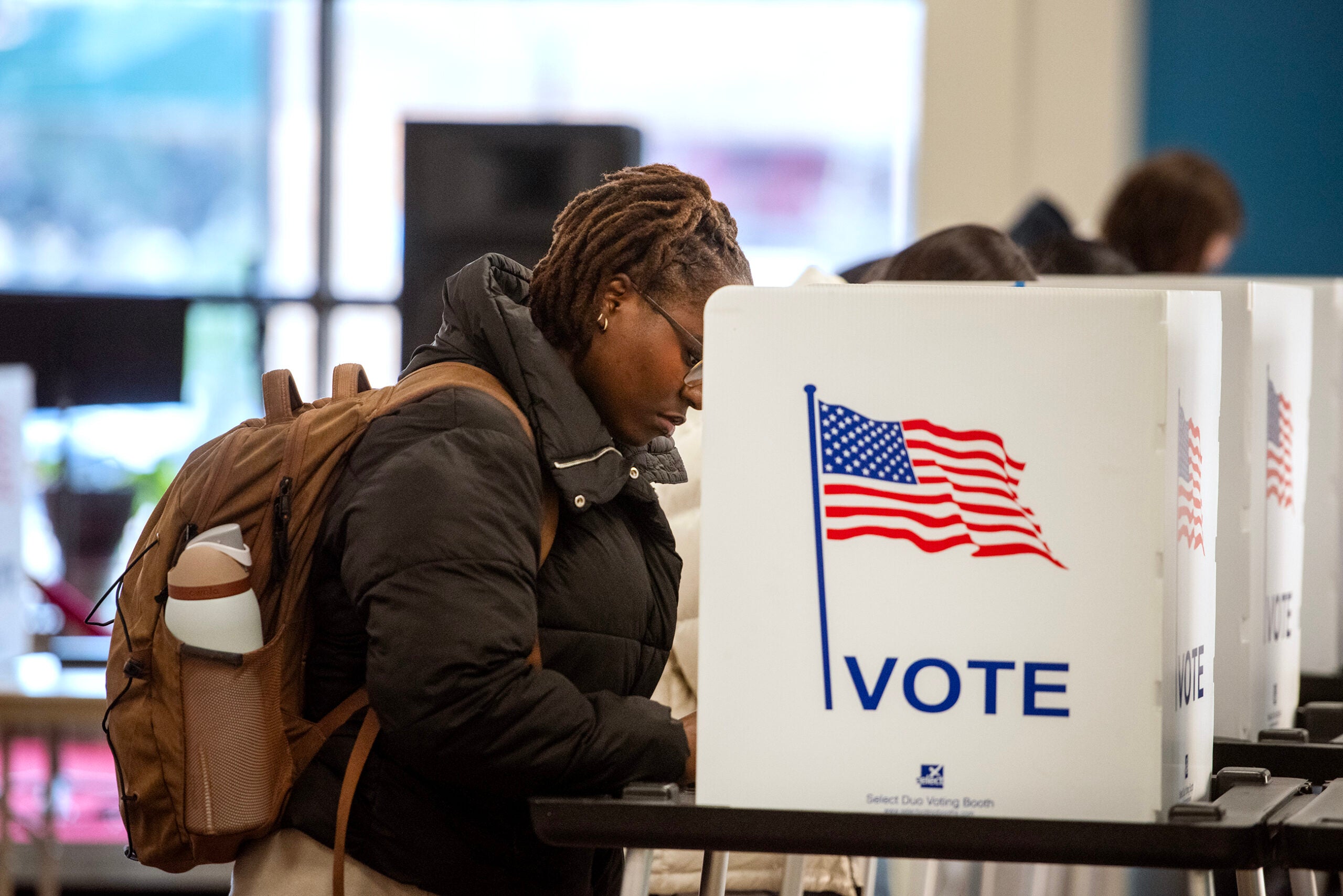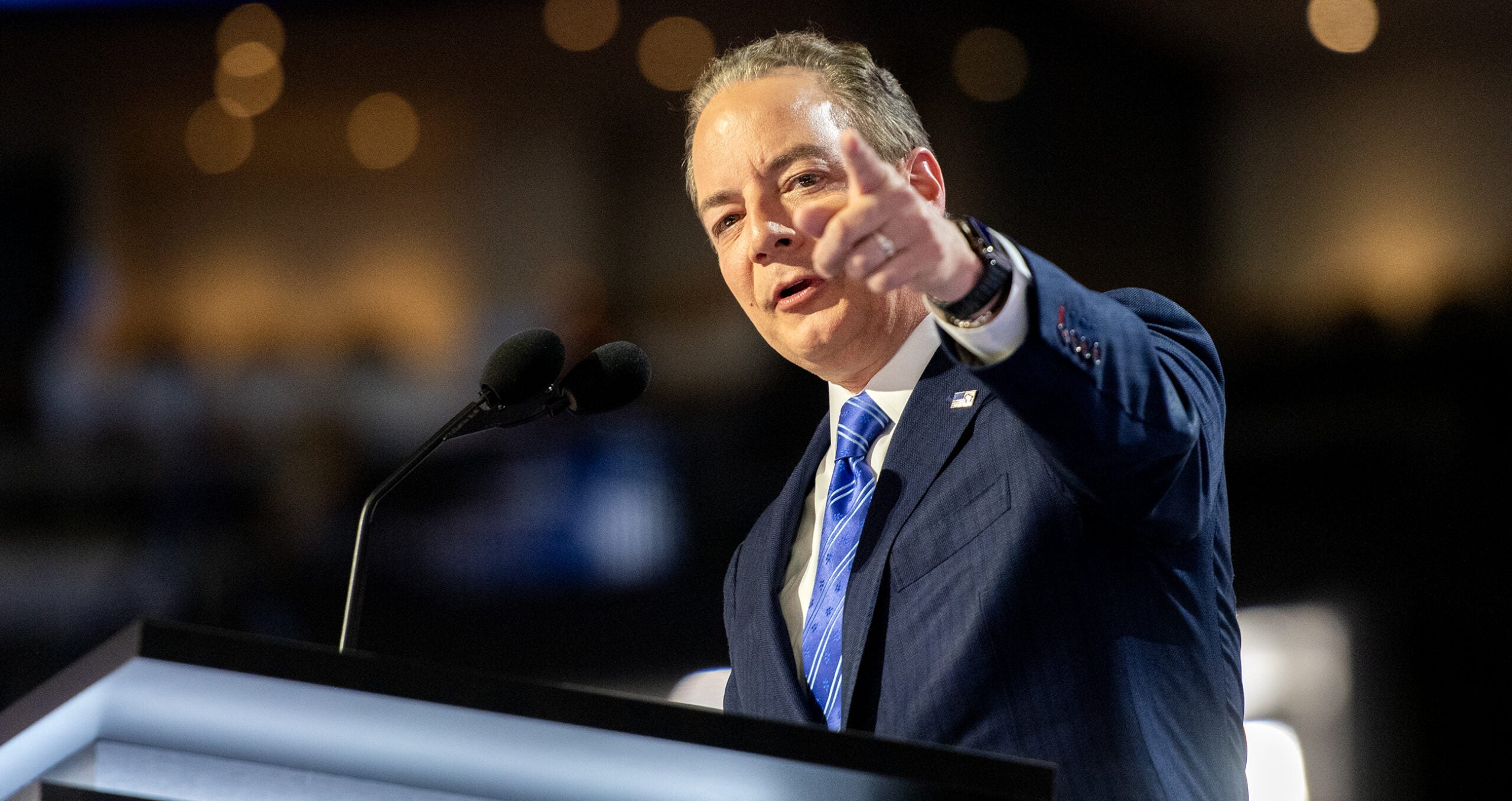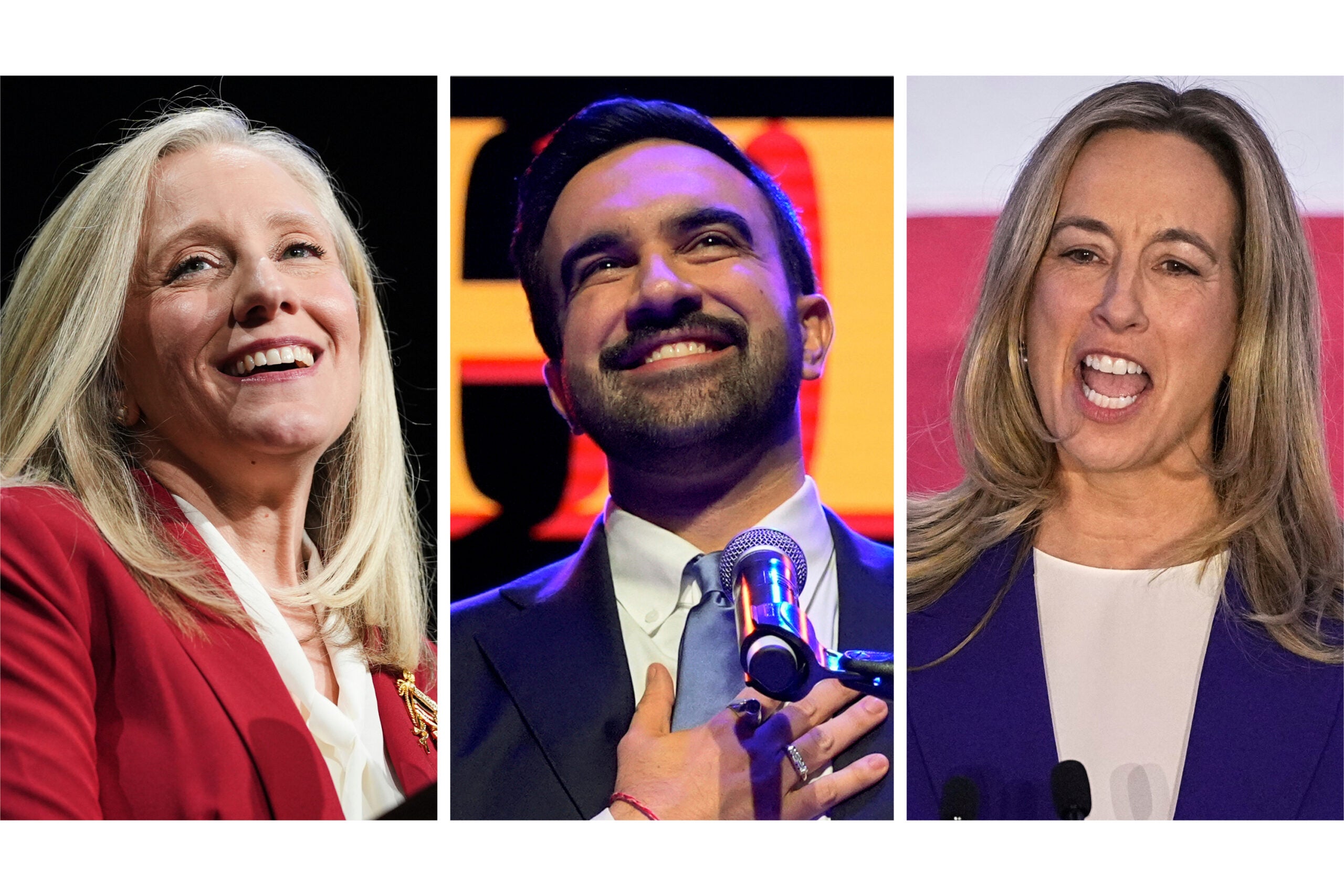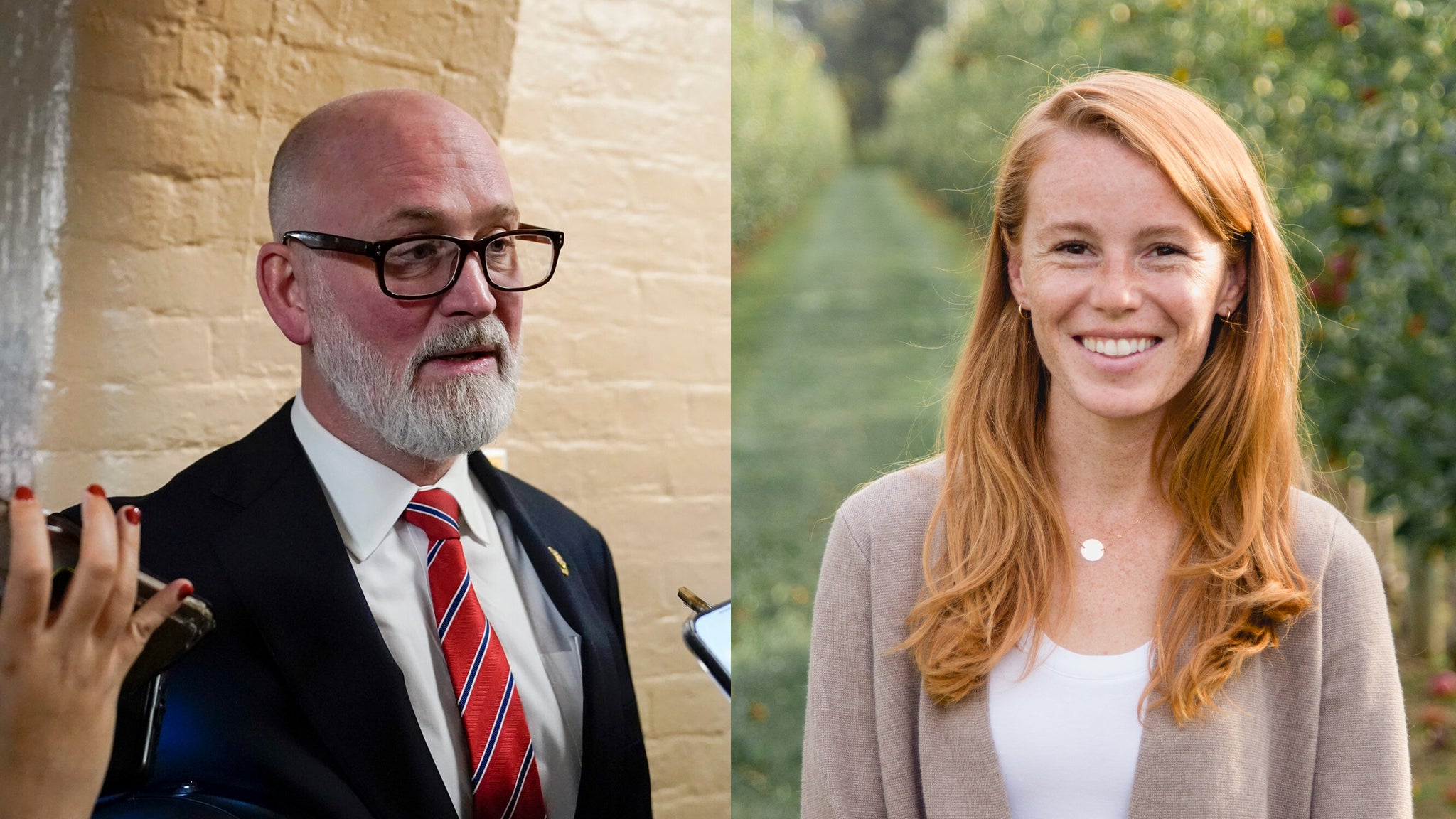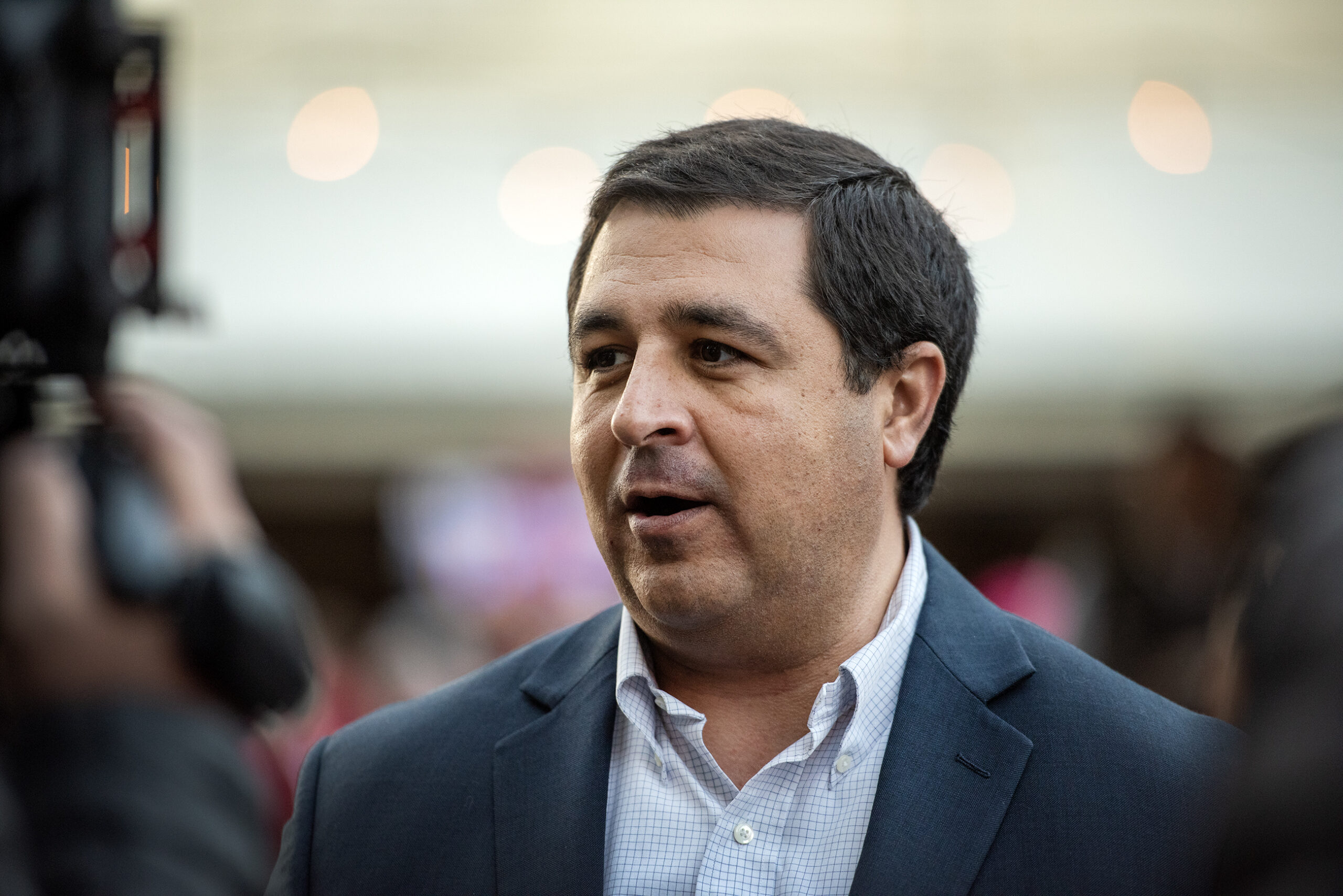By the end of this year, Americans will have been bombarded with political ads warning about the dire consequences of the November election and painting the opposing candidate as unfit for the presidency.
But at this moment in time — in the leadup to President Joe Biden’s 2024 State of the Union Address — the president’s administration is hammering home a different message, one that emphasizes policies Biden has championed and projects he’s funded around the country, including in the swing state of Wisconsin.
Economic and domestic advisors took turns Monday speaking to reporters from some of those states at a White House briefing about the kinds of bread-and-butter issues that often dominate local elections. They pointed to lower prescription drugs costs, lead pipe removal, consumer tax credit programs and investments in affordable housing, and they spoke broadly — and optimistically — about lower inflation and unemployment rates under Biden’s tenure.
News with a little more humanity
WPR’s “Wisconsin Today” newsletter keeps you connected to the state you love without feeling overwhelmed. No paywall. No agenda. No corporate filter.
“Our job here at the White House is just believing that good governance is good policy and good politics. So we’ll keep doing our jobs and doing it well here,” Stephen Benjamin, the White House’s Director of Public Engagement, told reporters.
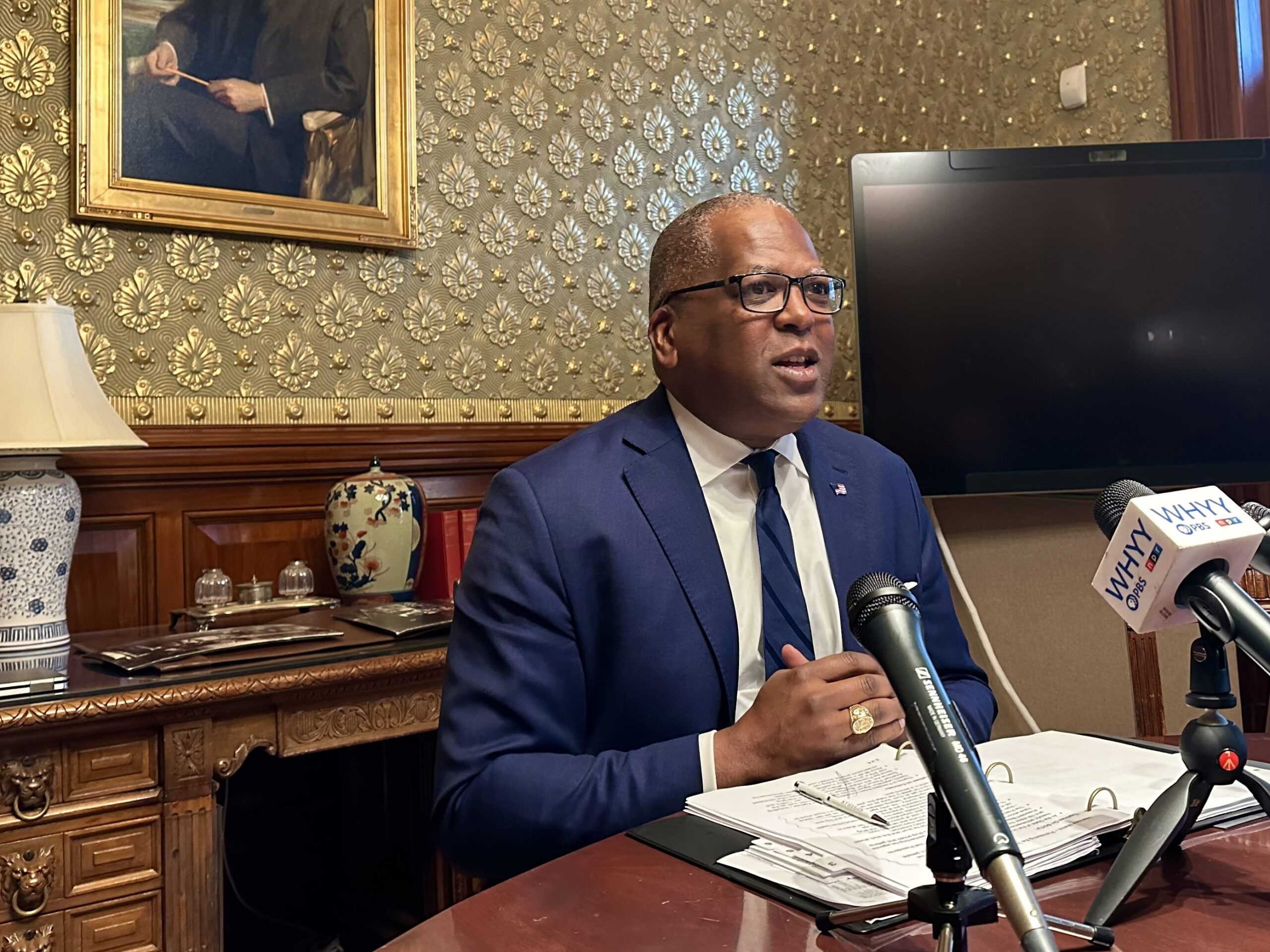
Biden is expected to unveil policy announcements on some of these topics during Thursday’s address, an indication that the president hopes his record, which includes massive federal spending plans focused on infrastructure and jobs, will yield dividends in November.
That’s when he’ll again face off against former President Donald Trump. Wisconsin, a starkly competitive state where national elections are often decided by less than a percentage point, will again be critical to either candidate’s success.
But it remains an open question whether a campaign centered around so-called “kitchen table issues” can chart a successful path to the presidency at a time of hyperpartisan politics, when many voters are weary.
Anthony Chergosky, a political scientist at the University of Wisconsin-La Crosse, said that when the kitchen table issue on many voters’ minds is high prices, it’s a difficult pitch for the president. But he understands why Biden is making the case.
“Because if that even moves a few voters, that could quite literally be the difference in Wisconsin,” Chergosky. “And winning Wisconsin could quite literally be the decisive factor in who becomes president.”
Wisconsin will once again be key in November
Wisconsin has had a long history of close elections, including the last two presidential contests. Biden carried the state by around 21,000 votes in 2020 while Trump defeated Democrat Hillary Clinton by just under 23,000 votes in 2016.
That year, many Democrats assigned part of the blame to Clinton, who famously did not campaign in Wisconsin. Nobody would accuse Biden of making the same mistake in 2024.
The past week alone saw visits from two high-powered Biden surrogates. On Sunday, First Lady Jill Biden was in Waukesha to talk about women’s health and abortion access, and on Wednesday — the day before the State of the Union — Vice President Kamala Harris unveiled a federal apprenticeship program during a Madison visit highlighting the administration’s work on jobs.
Last month, Biden himself was in northern Wisconsin — his eighth visit to the state as president — to promote investments in the Blatnik Bridge between Duluth and Superior.
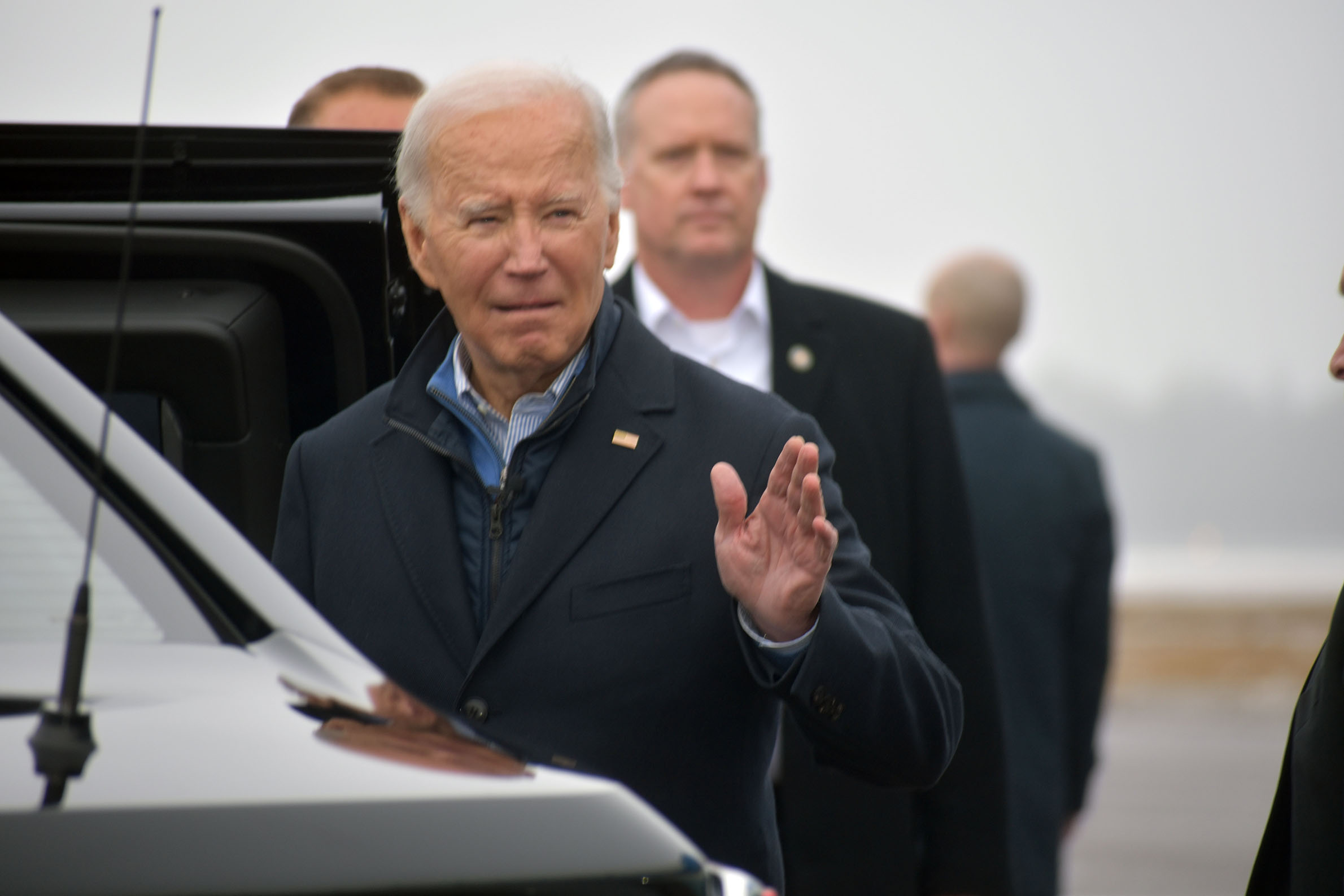
That project will receive $1 billion dollars from one of Biden’s signature achievements: a $1.2-trillion infrastructure package, passed with a handful of Republican votes in 2021. Biden is expected to tout that legislation, with its investments in broadband internet and lowering prescription drug costs, on Thursday.
Monday’s White House briefing was not an official campaign event, but precedes a State of the Union Address that some have billed as a “reset” for the president, eight months before Election Day. White House officials sought to combat a message that Biden isn’t strong on the economy while painting a rosy portrait of nationwide investment to come.
“By every objective standard, America is healthier and stronger than it was in 2020,” said Benjamin.
Biden’s address comes just a day after Trump’s last remaining Republican opponent, former South Carolina Gov. Nikki Haley, bowed out of the GOP primary, following a sweeping defeat on Super Tuesday.
That sets up American voters for a long campaign — following two candidates that polling suggests are especially unpopular, said Mark Graul, a veteran Republican campaign operative.
“This is more of a turnout election than it is a persuasion election,” said Graul, who directed George W. Bush’s 2004 campaign in Wisconsin, another close election in which the Republican incumbent lost the state to then-U.S. Sen. John Kerry by around 11,000 votes.
Biden and Trump are already well-known quantities, Graul said. That means, for better or for worse, most voters are already settled in their opinions about both men.
“Despite the fact that there’s going to be hundreds of millions of dollars spent on this campaign, I just don’t know how much that’s going to move people one way or another because I think most people have their opinions already pretty firmly in place,” Graul said.
Wisconsin voters are evenly split between Biden and Trump, according to Marquette Law School polling. Each received support from about 49 percent of registered voters in late January, with 2 percent identifying as undecided. Trump held an advantage with enthusiastic voters, while Biden had a lead with those less enthusiastic about voting.
Those small margins mean that a campaign can be won or lost along a handful of factors, experts say.
Talking about “bringing home the bacon,” in the way that Biden has, isn’t necessarily an effective strategy for presidential races, Graul said. Those kinds of campaigns often work better at the state or local level.
At the same time, Chergosky argued, the Electoral College system can have the effect of magnifying the importance of even small voting swings.
“Campaign effects will likely be limited. But even limited campaign effects could matter a lot given that a few swing voters here and there, going one way or another, could change the course of this entire election,” Chergosky said.
Republicans say Biden’s policies have voters ready for change
Wisconsin Republicans, of course, have a completely different read on how Biden’s first four years in office have played out and say they expect voters to be ready for a change.
U.S. Rep. Bryan Steil, R-Janesville, argues that Biden’s signature achievements amount to expensive government overreach that exacerbate the very problems they claim to solve.
“When you have this massive amount of spending coming out of Washington as this administration has overseen, what you do is you overstimulate the economy, you drive inflation, and you make things less affordable for families in Wisconsin,” he said.
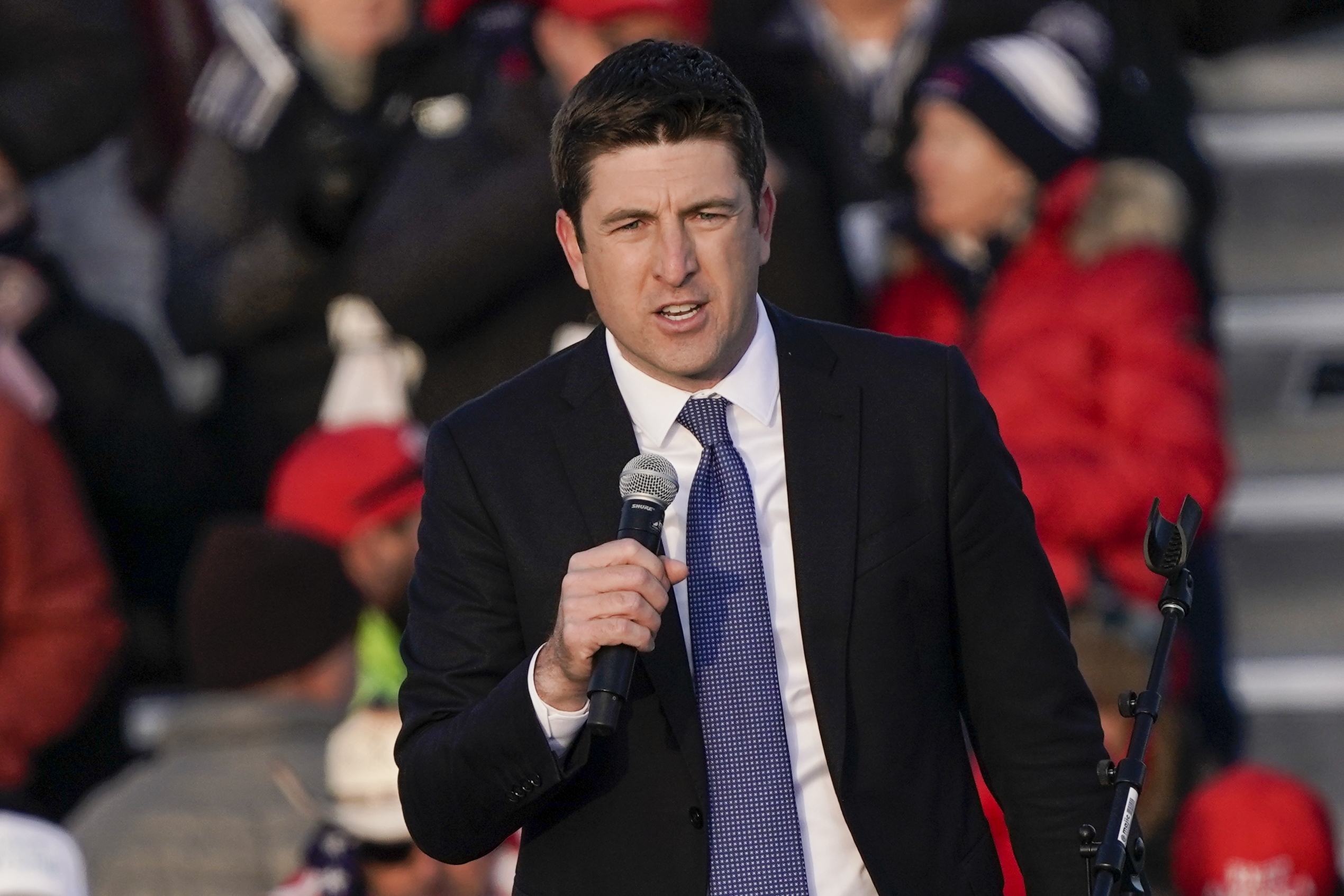
Steil and U.S. Rep. Glenn Grothman, R-Glenbeulah, also say that a recent increase in migration over the southern border is a Biden-made disaster. They argue that it feeds into economic challenges for U.S. citizens.
“What’s going on at the border is the biggest crisis this country has faced in my lifetime,” said Grothman. “You’re permanently changing America, putting a great deal of stress on America’s social fabric.”
It’s unclear how or whether Biden will address immigration on Thursday. Immigration advisors were not among those available to reporters Monday.
That difference in priorities speaks to a broader discrepancy in the messaging that voters are being exposed to, said Chergosky.
“Biden and Trump don’t just have different policy views. They have completely, utterly opposed way of ways of talking about the nation,” he said. “Trump portrays America as deeply on the decline as facing this invasion, as being the laughingstock of the world, while Biden portrays a much more optimistic view of the nation.”
Those perceptions of the candidates’ values and personalities — as well as any number of other factors — are likely to have as much effect as specific policy issues, Chergosky added.
At the White House, officials like Benjamin, the public engagement director, make no secret of the fact that they want Americans to buy into the optimistic vision.
“Hopefully, prayerfully, people will feel the benefits in their lives every day, and also attribute them directly to the leadership of Joe Biden and Kamala Harris,” he said.
Wisconsin Public Radio, © Copyright 2026, Board of Regents of the University of Wisconsin System and Wisconsin Educational Communications Board.

